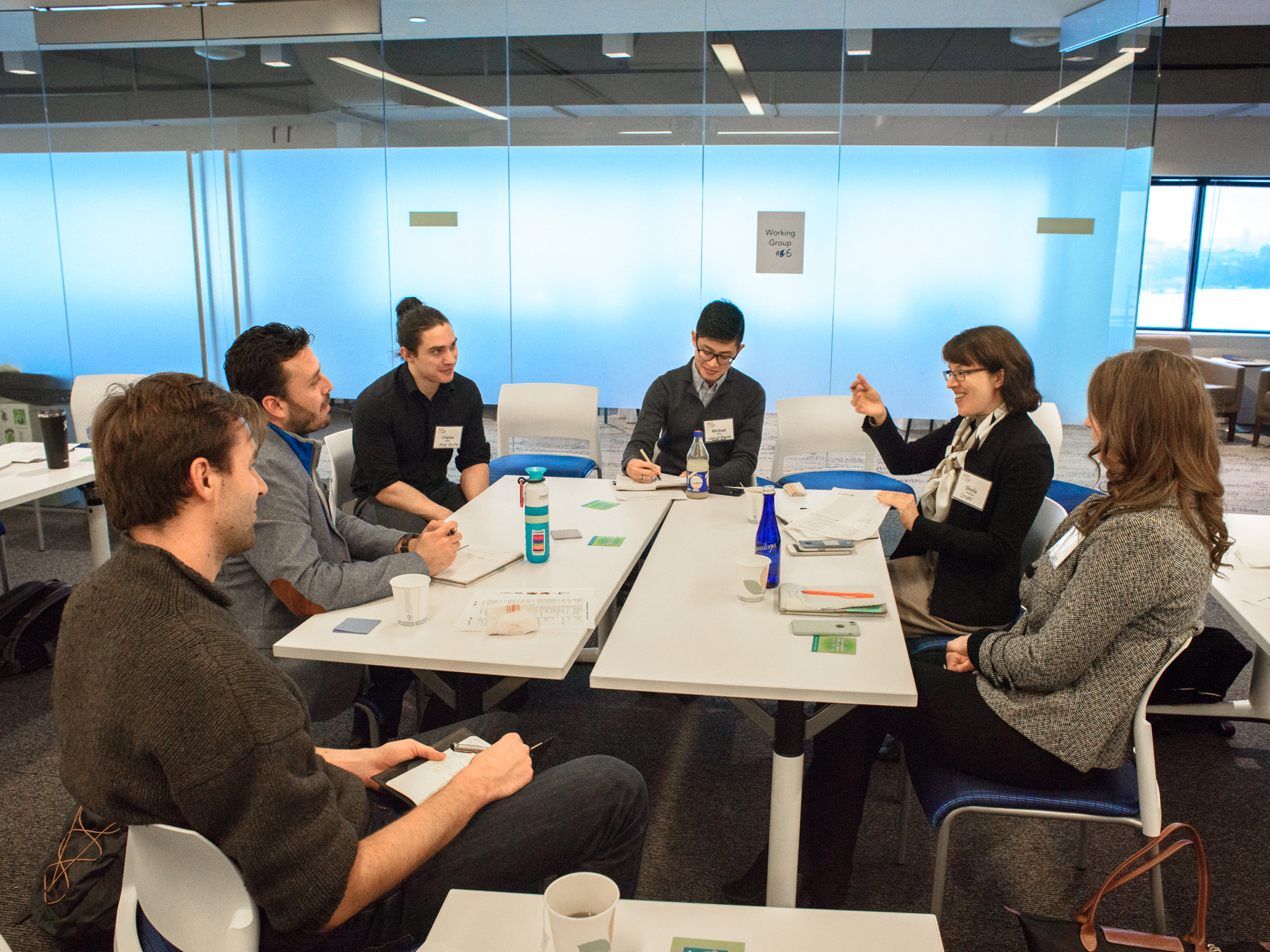Menu
ESI Stories
Rapidly Responding in a Complex World
by John E. Fernández
August 13, 2020
Environmental justice and fossil fuel infrastructure; industrial agriculture and climate change; a post-COVID global hunger crisis; the real message of climate models; the asymmetrical social and economic burdens facing communities battling for toxic cleanups; the weakening of the Migratory Bird Treaty Act; the dangers to vulnerable horseshoe crab populations from pharmaceutical companies… these are just a sampling of the 44 diverse issues that a group of 20 students took on this summer as inaugural members of the ESI Rapid Response Group (RRG).

Members of the Summer 2020 ESI Rapid Response Group
Formation of the group was motivated by two distinct needs: first, to provide well-timed, science-based assistance to people working to advance climate and environmental priorities. Second, to do for policy-making what we do so well at MIT for science and engineering, learning by doing. When learning about the underlying social and economic structures, legal and political processes, indistinct interests and shifting motivations driving policy discussions and decisions, there is no substitute for doing the work of engaging directly with individuals, communities, institutions, companies, and government.
For example, consider that 70 percent of workers in the industrial meat workforce are people of color, more susceptible to serious health consequences of COVID and without significant workers’ rights to organize, leading to “systemic human rights violations” according to Humans Rights Watch. This is in an industry that is under increasing pressure to address its greenhouse gas emissions. Connect these issues and pathways for significant beneficial reforms emerge. Or consider the increasing reliance on private financing to fill the funding gap needed to adequately address resilience in urban communities. As private money is mobilized, equity may suffer leading to the next generation of environmental injustice. Already today, the greater prevalence of green spaces in wealthier urban areas – beneficial to moderate the consequences of flooding and provide relief from climate-induced urban heat – is leading to resilience inequities.
Consider the increasing impact of air pollution from trucks arriving and leaving from warehouses serving our digital purchasing needs – Amazon “fulfillment centers” and others. As e-commerce has exploded during the pandemic, air pollution around these warehouses and other facilities has increased and disproportionately affected residents of lower income and less education – and increased worries of a correlation to bad COVID-related health outcomes. Another reason to accelerate the development and deployment of electric trucks and creative and equity-driven land use planning.
What students of the RRG learn quickly is that solutions are as varied, and often as complicated, as the situations themselves. The work of the RRG is non-partisan and built on the principle that a working democracy requires an informed citizenry that holds government to the idea that it derives its powers “from the consent of the governed.”[1] To do this effectively, we believe it’s important to engage directly; to understand the complexity and to accept that expressing one’s views in a climate march is one thing, but real solutions almost always require much, much more.
During this summer of COVID, the RRG collaborated with several congressional offices, Cambridge City Councilors, various community organizations, the MIT Washington Office, many MIT professors and researchers, a range of environmental groups, industry trade groups, individual companies, and many others. The RRG project portfolio is the result of a weekly pitch session in which all members bring one or more new projects to the table and then vote to activate. Group members have produced state of the art synopses, fact sheets, talking points, research agendas, Op-Eds, panel discussions, information pieces and more.
The RRG is now accepting applications for the 2020 Fall term. All MIT undergraduate and graduate students are eligible to work for pay and undergrads for UROP credit. Please send an email to esirrg@mit.edu if you or someone you know may be interested in joining us.
Summer RRG undergraduate members
MIT: Danielle Grey-Stewart, Diane Li, Jess Cohen, Melissa Stok, Naomi Lutz, Jessica Horowitz, Ben Delhees, Tessa Weiss, Lucy Milde, Ava Waitz, Jacob Fine
Reed College: Samantha Hordyk
Holy Cross: Emily O’Regan
Summer RRG graduate members
MIT: Alexander Gant, Priyanka deSouza, Zak DeGiulio, Nina Mascarenhas, Jack Hanly, Caroline White-Nockleby, James Minor
[1] The Declaration of Independence – you can find this phrase in the sentence right after “the pursuit of Happiness.”
















